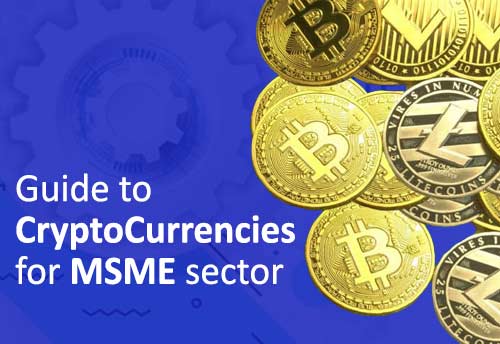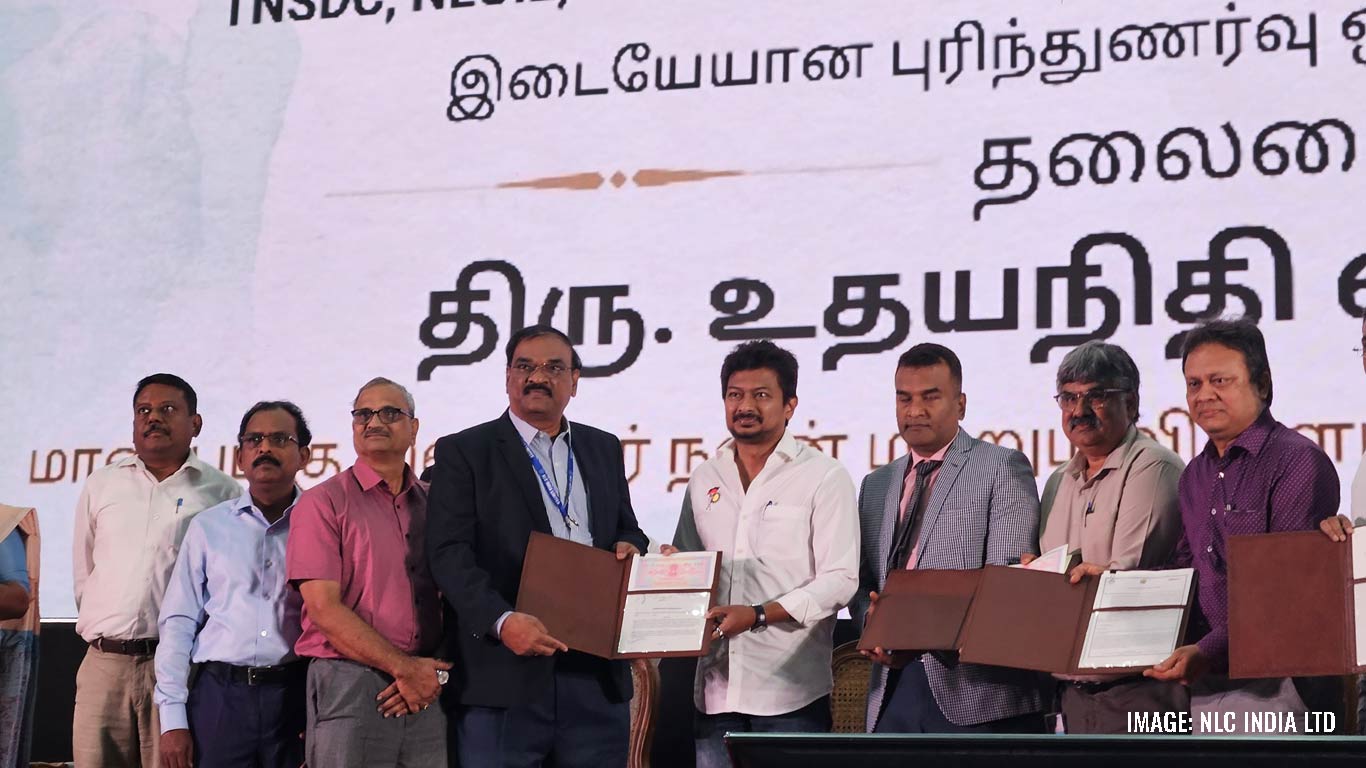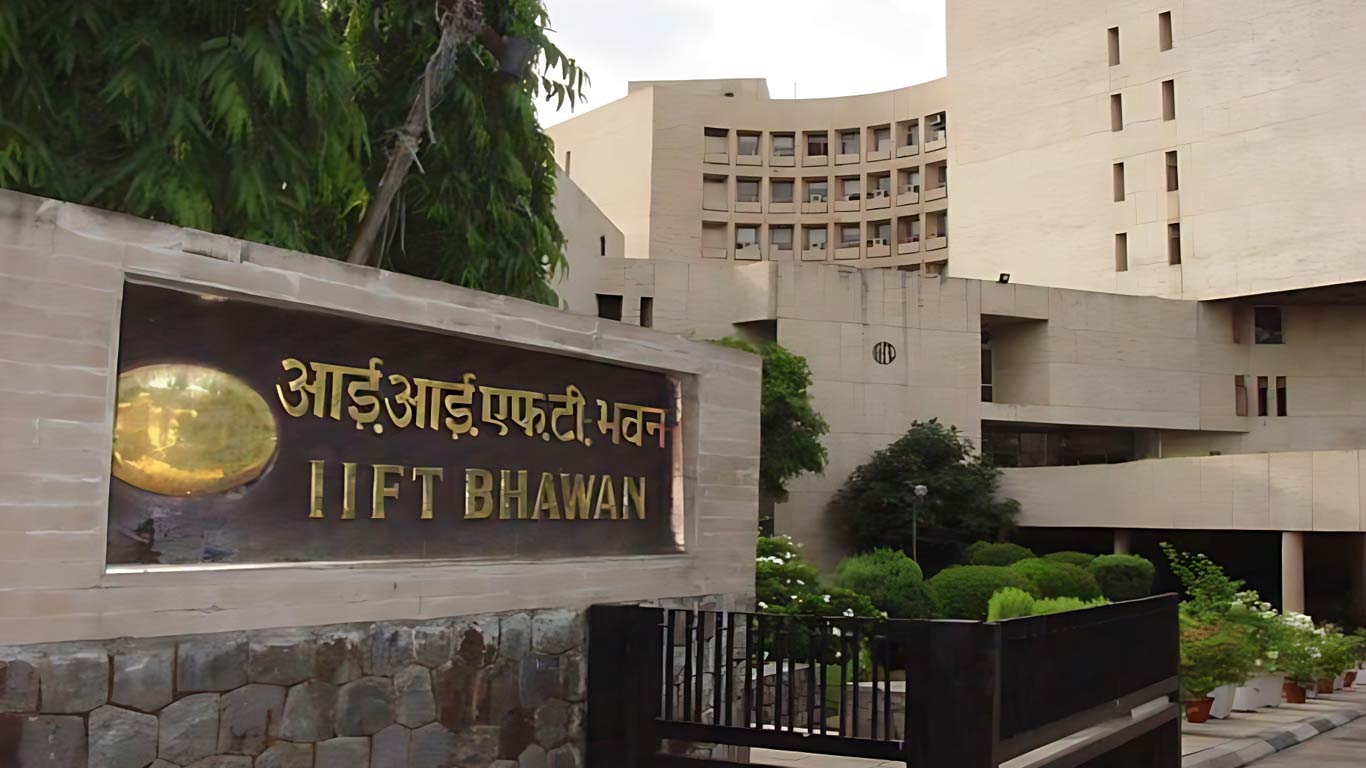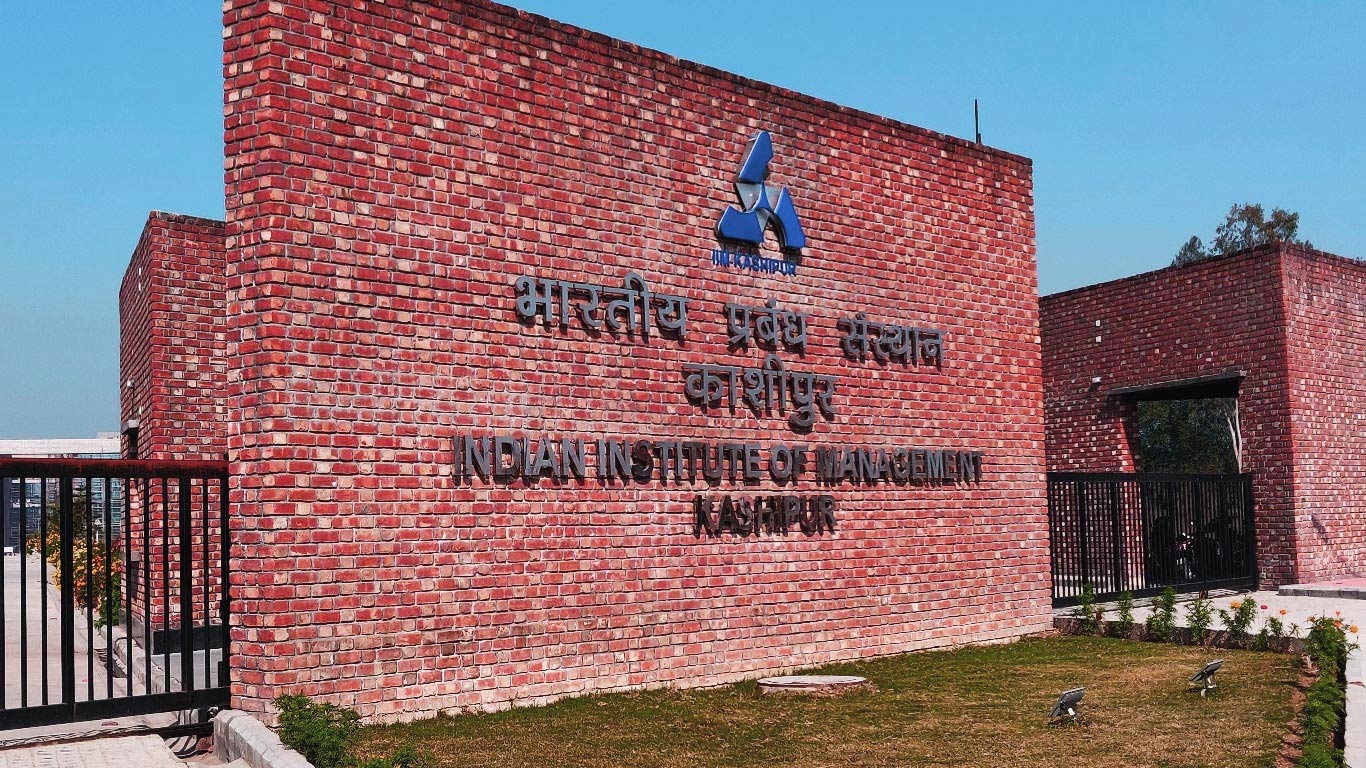Guide to Cryptocurrencies for MSME sector
Updated: Dec 03, 2021 11:33:54am

Guide to Cryptocurrencies for MSME sector
New Delhi, 3 Dec (KNN) In March 2020, the Supreme Court had annulled the RBI circular banning cryptocurrencies. Almost after a year in February 2021, RBI had established a panel to recommend a digital currency by Central Bank.
The government has now proposed a draft bill CryptoCurrency and Regulation of Official Digital Currency Bill, 2021 which will be introduced in the winter session of the parliament. It prohibits Mining, Holding, Selling, Issuing, Trade, and Disposal of cryptocurrency in India.
KNN presents a brief guide on understanding the fundamentals of CryptoCurrencies for the MSME sector to comprehend from their viewpoint.
Q1.What is CryptoCurrency.
Crypto is a digital currency that uses cryptography for authentication of the transaction recorded in the form of blockchains.
Q2. Who Invented CryptoCurrency?
Satoshi Nakamoto is the name used by the presumed pseudonymous person or persons who developed the first cryptocurrency called bitcoin.
Q3. How does it work?
Cryptocurrency works through a blockchain process. Blockchain is a decentralized technology that is spread across many computers. These computers then act as an auditor who maintains transaction records of cryptocurrency. To understand this let us go back to the time period when we used a barter system for the exchange of goods and services now for example Person A buys 5Kg of rice from person B in Exchange for 5 baskets made by him this transaction is now engraved on a block and that block is then cemented in the middle of the village so that everyone is aware of the fact that person B is now the owner of those 5baskets made by person A and Person A is now having 5Kg of rice in exchange. As this information is shared publically to the entire village the possibility of any dispute does not occur. Now the next day Person B sells those basket to one of his friends in the village and record this transaction again on a block and cement it right above the previous block he had cemented publically. In this case, everyone in the village can see that Person B no longer owns those 5 baskets so, In case of person c is out of town person b cannot claim the ownership of those baskets and trade them to someone else.
This kind of financial setup may not be an easy way to use but it gives everyone in the village a way of keeping track of their transactions. Also, the transactions are cemented that is they are fixed and cannot be altered when it’s publically visible. Also, this is a decentralized system that is there is no central bank or government involved in this financial setup. It is all managed by the community.
Blockchains and cryptocurrency have a number of differences from the above example. Let’s understand blockchain in three simple steps:
-- First: As each transaction occurs, it is recorded as a “block” of data.
-- Second: Each block is connected to the ones before and after it.
-- Third: Transactions are blocked together in an irreversible chain which is a blockchain.
Q4. How it is different from Paper Currency?
CryptoCurrency is a digital currency that has no physical presence and no central bank as a guarantor.
Q5. How to own a cryptocurrency? There are various methods:-
-- 1. Direct buying through payment gateways such as Paypal.
-- 2. Investing via third party/companies having bitcoin in the balance sheet.
-- 3. Mining.
Many of you may not be aware of the term mining. Mining is like working as an auditor for the crypto market for which you get a reward in the form of cryptocurrency. But it’s not an easy task to do mining in case you are sme because crypto mining depends on Power consumption, GPU “Graphic Processing Unit”, ASIC “Application Specific Integrated Circuit”. Mining simply means providing your computer with high GPU and ASIC which requires a lot of power for consumption and in return you get a reward in the form of cryptocurrency which usually is very low and requires a lot of time. SME’s would have no other option but to invest in additional infrastructure and manpower in order to gain rewards.
Q6. Global Significance?
-- Cryptocurrency is not regulated by a central bank and is not printed it is computer generated.
-- There are still no uniform international laws that regulate cryptocurrency.
-- Many major and developed countries allow the use of bitcoin, such as the U.S., Canada, and the U.K.
-- Other countries are opposed to any use of bitcoin, including China and Russia.
Q7. How Secure is CryptoCurrency? How cryptocurrency maintain records of payment?
Cryptocurrency uses blockchains cryptography to record transactions. Blockchain technology is said to be the safest. This technology is used to maintain records which is highly confidential, used in business for track keeping.
Q8. Its influence in India?
In India retail investors holds around 6 billion of these virtual currencies with a high frequency of young investors. India ranked second in a list of 20 countries with the highest cryptocurrency adoption rate, according to cryptoanalysis platform Chainalysis report 2021. Vietnam secured the first spot, and Pakistan came third.
Q9. Government?
The government has proposed a draft bill CryptoCurrency and Regulation of Official Digital Currency Bill, 2021 to be introduced in the winter session of the parliament which prohibits Mining, Holding, Selling, Issuing, Trade, and Disposal of cryptocurrency in India. In a meeting chaired by Prime Minister Narendra Modi on November 13, he had flagged the issue of misleading non-transparent advertising on cryptocurrency. Stressing on the point he said unregulated markets cannot be allowed for money laundering and terror financing.
Q10. How is it going to impact MSME’s?
The biggest challenge with small and medium enterprises is money. The Crypto market in recent years has emerged as a major investment center due to its high returns. If someone would have invested Rs.10,000 in Dogecoin a year ago then it’s value today would have gone up to Rs.5.75 lakhs this high return is the major aspect of transition towards crypto, especially amongst the youth. But as in the share market crypto market also fluctuates and before investing one must understand the concept and its technical aspects.
Technical aspects of crypto and concerns on privacy: - A small scale industry or SME’s has limited capital to invest for having a stake in crypto one must understand this fact that investing in crypto requires technical and analytical skills also if you want to do mining then it requires high tech computers processing units like GPU “Graphic Processing Unit” and ASIC “Application Specific Integrated Circuit”. In the case of SME’s, it would require additional capital investment on these units along with the skilled manpower to manage the investments.
Q11. Pros and Cons for SME’s?
Cryptocurrency has the following advantages:
-- Funds transfer between two parties will be easy without the need for the third party like credit/debit cards or banks
-- It is a cheaper alternative compared to other online transactions
-- Payments are safe and secured.
-- Modern cryptocurrency systems come with a user “wallet” or account address which is accessible only by a public key and pirate key. The private key is only known to the owner of the wallet
-- Funds transfers are completed with minimal processing fees.
Cryptocurrencies have the following disadvantages:
-- The almost hidden nature of cryptocurrency transactions makes them easy to be the focus of illegal activities such as money laundering, tax evasion, and possibly even terror-financing
-- Payments are irreversible.
-- Cryptocurrencies are not accepted everywhere and have limited value elsewhere.
-- There is concern that cryptocurrencies like Bitcoin are not rooted in any material goods.
-- As Mining is a process that requires a lot of energy consumption it has a very deep impact on the environment.
Conclusion: The ban on cryptocurrency or regulations such as collection of taxes on crypto gains are uncertain and will be clearer as the winter parliamentary session progresses. Meanwhile experts are saying government is planning to regulate crypto through SEBI as first reported by NDTV. SME’s must understand that even if there is a complete ban on private cryptocurrency investors are still going to find another way to gain profits from crypto but anyone who is investing must in prior understand the facts and current developments.
The Government and crypto platforms should come together to find a way on how these cryptocurrency gains can be allocated to small and medium enterprises in India.
Disclaimer: The information provided here is with a view to create awareness among MSMEs & general public and should not be construed to as an advisory for or against investment in Crypto currencies. Please make appropriate enquiries about risks before making any investment.











